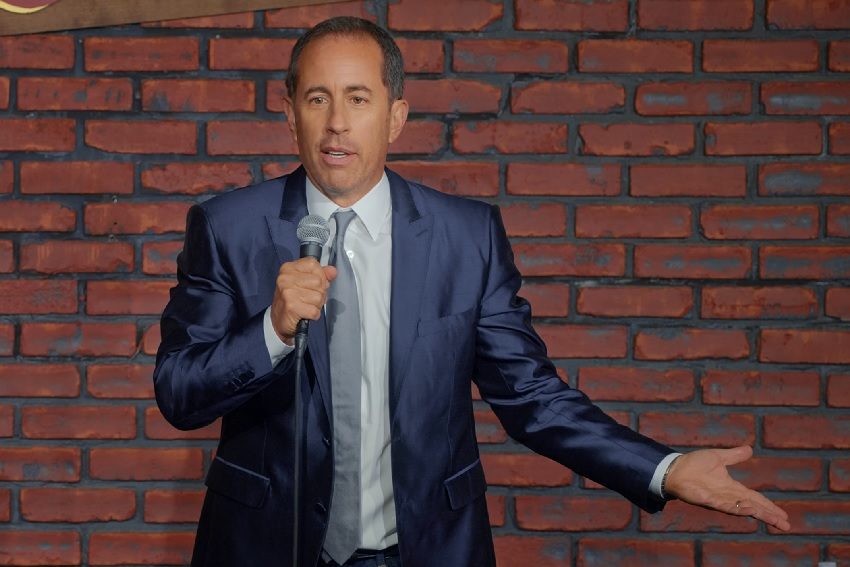
James McCann
James Donald Forbes McCann is a writer and award-winning stand-up comedian.

Focussing on the work much more than the man, Jerry Before Seinfeld is probably as close as Jerry Seinfeld will ever get to a biopic. The new comedy special/documentary that’s just landed on Netflix is an hour of Seinfeld performing at The Comic Strip, intermingled with interviews, cutaways, overlays and exposition.
It is a timely release, coinciding with a spike in enthusiasm for Seinfeld and his jokes. For decades after his eponymous show made him a household name, Seinfeld was damned with faint praise.
Sure, he wrote and starred in the most successful sitcom of all time, but among comedy nerds and the cultural elite, credit for Seinfeld was usually attributed to the madcap Larry David. Jerry himself was considered — when considered at all — as a fairly pedestrian observational comic. At dinner parties across the world, middle-aged men would put on a silly voice and ask ‘What’s the deal with X?’ in affectionate mockery. Seinfeld was cool. Jerry, himself, was not.
But in the last few years a Jerry-naissance has taken place. The catalyst might have been Ricky Gervais’ sit-down special Talking Funny, in which Chris Rock and Louis C.K. observed the surprisingly dark tone which underlies much of Jerry’s material. The man who seemed like a light and accessible gag-smith was, perhaps, comedy’s chief nihilist.
People had never stopped loving Seinfeld, but suddenly a new audience was interested in Jerry. His web series Comedians in Cars Getting Coffee, which is entirely described by its title, became a viral hit. Bee Movie finally found a loving audience on Facebook, years after it departed half-empty cinemas.
The new devotees were out in force at Seinfeld’s recent performance in Adelaide. Demographically, ticket buyers were split 50/50 between baby boomers and kids in their early 20s. Particularly on fleek kids in their early 20s, by the way. Think men with Kanye West caps on, and women wearing fishnet stockings underneath jeans. It was as though a bunch of parents had come to pick their offspring up from an RnB nightclub: tasteful military apparel, matte lipstick, flaunted bums, plus Mum and Dad.
It’s not hard to figure out why the baby boomers love Jerry Seinfeld, because they’ll tell you, repeatedly, throughout his shows. ‘It’s so true! I really do eat all the cookies!’ The millennials agree, but in a philosophical sense and with an existential zeal. ‘It’s so true! Nothing means anything! The cookies are all we have!’ Notably, the two audiences laugh hard at alternating punchlines.
None of the jokes peppered throughout Jerry Before Seinfeld were in his recent touring comedy special. At the end of the show, it is revealed that the joke’s Seinfeld has been telling are ones he wrote during the first first five years of his career approximately forty years ago. To mangle a Patrice O’Neil quote, comedy gets old like bread, not like wine. Jerry Seinfeld is the exception.
Jerry Before Seinfeld offers clues as to why this might be, why a new generation are so enthusiastic for him and his routines. For this generation, raised to be hollow and materialistic, Seinfeld exhibits burning purpose. In a characteristically earnest moment, he recalls thinking that if he could do stand up, and only earn enough money to eat, that would be a perfect life. At a time when stupidity seems omnipresent, when standards have never been lower, Seinfeld’s curmudgeon-ism feels fresh. In an overly emotional age, he’s guarded verging on severe.
The young folks have been sold Ke$ha, but what they really want is the old man who refuses to hug her. With Jerry Before Seinfeld, they will be well pleased.

James Donald Forbes McCann is a writer and award-winning stand-up comedian.